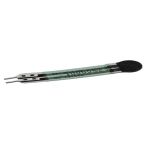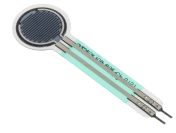I.E.E.
I.E.E.
4 Products showing for I.E.E.
1 of 1
Limited stock
- RS Stock No. 189-5562
- Mfr. Part No. SS-U-N-S-00009
- Brand I.E.E.
- Force Measured Compression, Tension
- Product Type Strain Gauge
- Force/ Load Measurement Range -
- Gauge Resistance 1mΩ
Subtotal (1 unit)
£21.31(exc. VAT)
In Stock
- RS Stock No. 189-5556
- Mfr. Part No. SS-U-N-S-00001
- Brand I.E.E.
- Force Measured Tension, Compression
- Product Type Strain Gauge
- Force/ Load Measurement Range -
- Gauge Resistance 1mΩ
Subtotal (1 unit)
£20.29(exc. VAT)
Limited stock
- RS Stock No. 189-5590
- Mfr. Part No. SS-U-N-S-00039
- Brand I.E.E.
- Force Measured Compression, Tension
- Product Type Strain Gauge
- Force/ Load Measurement Range -
- Gauge Resistance 1mΩ
Subtotal (1 unit)
£25.34(exc. VAT)
Limited stock
- RS Stock No. 189-5584
- Mfr. Part No. SS-U-N-S-00015
- Brand I.E.E.
- Force Measured Compression, Tension
- Product Type Strain Gauge
- Force/ Load Measurement Range -
- Gauge Resistance 1mΩ
Subtotal (1 unit)
£22.57(exc. VAT)
Results per page



